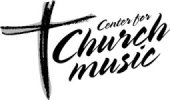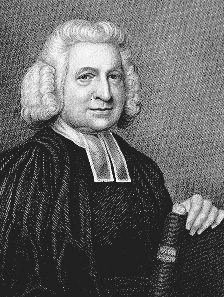Center For Church Music, Songs & Hymns

Browse Hymns:
Browse by:
We Invite You To Sing
To sing with us, 1) Click on the music thumbnail icon to view the sheet music (you don't have to read music!), and 2) Engage the audio file by clicking on the Real audio or Mp3 file.
Find Songs And Hymns
Charles Wesley

- Birth: December 28, 1707, Epworth, Lincolnshire, England
- Death: March 29, 1788, London, England
Charles Wesley
was born to Samuel and Susanna Wesley in 1707. As a boy, he was educated at home, but he went on to Westminster School and then Christ College in Oxford, where he received his B.A. in 1730 and his M.A. in 1732.During his years at Oxford, Charles and his brother John joined George Whitefield in forming the Oxford Holy Club. Their interest in systematic study and regular practice of religious duties earned them the nickname of "methodists."
Originally, the Methodist movement was designed to remain within the Church of England, simply adding fervor and piety to the existing church. But the Methodists were eventually forced out, leading them to organize a separate Methodist Church. Though Charles Wesley had been a founder of Methodism, he remained in the Church of England all his life.
Wesley's ordination as a priest in the Church of England occurred in 1735. For a short time he served as a missionary in Georgia, but soon returned to London. Even in his early years of ministry, he didn't experience an assurance of his salvation. Wesley himself dates his conversion to Whitsunday, May 21, 1738, when he received a conscious knowledge of sins forgiven.
This event marked the real beginning of his mission as the singer of Methodism. He wrote the hymn "Where Shall My Wondering Soul Begin" on that conversion day-many more hymns would follow in the years to come. And as the Methodists were very receptive to hymnody, they embraced Wesley's hymns.
Wesley was sometimes called "the poet of Methodism," yet this designation really defined him too narrowly. He could more rightly be called the poet of Christianity, since his hymns have enjoyed such widespread use among various denominations. He wrote about 6,500 hymns, all of them after his conversion in 1738.
Charles Wesley has been called "the Asaph of the Methodist Church" after Asaph, King David's choir leader, who is named in Psalms 73-83. Wesley was a prolific hymn writer, writing over 6,000 hymns.
He wrote during the time of great revival of the church. His hymns emphasize salvation and a personal Christian experience. His own salvation dates to Sunday May 21, 1738, in Aldersgate Hall in London, England. He suffered with a lingering illness, which caused him to fear death. His brother, John, and some friends visited Charles that day. They sang a song, prayed and left. He later said, "After they had gone, I prayed, drifted into a deep sleep and seemed to hear a voice saying, "In the Name of Jesus of Nazareth, arise, and believe, and thou shalt be healed of all thine infirmities." I cried, "I believe, I believe;" and when I awoke, I yielded my heart to the Lord, promising to serve Him faithfully all the days of my life."
Following his conversion he began to write numerous hymns. In 1738, working with his brother John Wesley, he published a collection of 70 psalms and hymns, though he wrote none of these. In 1739, he published Hymns and Sacred Poems, which included 50 hymns written by Charles including Christ the Lord is Risen Today" and "Hark the Herald Angels Sing." The following year he published another volume by the same name which included the first appearance of "Christ! Whose Glory Fills the Skies," "Jesus. Lover of My Soul," and "Oh! For a Thousand Tongues to Sing." Many other volumes followed. At his death, there were about 2,000 hymns in manuscript, that is, unpublished. Some of these have since been published, including his "Poetical Version of nearly the whole Book of the Psalms of David," which was edited by the Rev. Henry Fish and published in 1854.
Charles Wesley wrote over 6500 hymns, which would be writing at least two hymns a week, every week for 50 years, from his conversion in 1738 to his death in 1788. His hymns came out of what he saw as important occasions. His own life inspired hymns: his conversion, his marriage, things he had seen, the death of his friends. Public events inspired hymns: the earthquake panic, rumors of an invasion from France, the defeat of Prince Charles Edward at Culloden, the Gordon riots. He wrote hymns for all the festivals of the Christian faith.
Wesley’s hymns can be generally classified as hymns of Christian experience, invitation hymns, sanctification hymns, funeral hymns, and hymns on the love of God. In his hymns, he referenced all but 4 of the books of the Bible. He used more than 45 different meters. It has been said that Wesley’s hymns clothed Christ in flesh and blood and gave converts a belief that they could easily grasp, embrace with personal faith, and if necessary, even die for.
Charles Wesley, with his brother, first published a collection of seventy psalms and hymns in 1738, none of which were original. In 1739 he published "Hymns and Sacred Poems", a collection of 223 pages and 139 hymns, with fifty pieces written by Charles Wesley. Other volumes of this work followed, in 1740, in 1742 and 1743. He published many other volumes of hymns and poems, along with tracts. Some of the publications are:
Collection of Moral and Sacred Poems from the most Celebrated English Authors
Hymns for the NativityHymns for the Watchnight
Funeral Hymns
Hymns for Times of Trouble and Persecution
Hymns on the Lord’s Supper
Hymns for Ascension Day
Hymns for our Lord’s Resurrection
Hymns of Petition and Thanksgiving for the Promise of the Father
Hymns for the Public Thanksgiving Day, October 9, 1746
Gloria Patri, etc., or Hymns to the Trinity
Graces before and after Meat
Hymns for those that Seek, and those that Have, Redemption in the Blood of Jesus Christ (commonly called Redemption Hymns"
Hymns and Sacred Poems
Hymns for New Year’s Day 1750
Hymns occasioned by the Earthquake, March 8, 1750
An Epistle to the Reverend Mr. John Wesley
An Epistle to the Reverend Mr. George Whitefield
Hymns for those to whom Christ is All in all
Hymns for Children
Collection of hymns for the Use of the People called Methodists
At his death, about 2000 hymns were unpublished, although some have been included in hymnals and periodicals since.
Page numbers in Trinity Hymnal (1990) and The Worshiping Church (1990)
| Title | Trinity | Worshiping |
|---|---|---|
| A Charge to Keep I Have | 659 | |
| And Can It Be | 455 | 473 |
| Arise, My Soul, Arise | 305 | 483 |
| Blow Ye the Trumpet, Blow | 474 | |
| Christ the Lord Is Risen Today | 277 | 234 |
| Christ, Whose Glory Fills the Skies | 398 | 562 |
| Come, Let Us Join in One Accord | 393 | |
| Come, Let Us with Our Lord Arise | 798 | |
| Come, Thou Long-Expected Jesus | 196 | 135 |
| Forth in Your Name, O Lord, I Go | 397 | |
| Hail the Day That Sees Him Rise | 290 | 258 |
| Hark, the Herald Angels Sing | 203 | 171 |
| I Know That My Redeemer Lives | 690 | |
| Jesus Christ is Risen Today | 273 | 250 |
| Jesus Comes with All His Grace | 468 | |
| Jesus Comes with Clouds Descending | 283 | |
| Jesus, Lover of My Soul | 508 | 461 |
| Lo! He Comes with Clouds Descending | 318 | |
| Love Divine, All Loves Excelling | 529 | 558 |
| O For a Thousand Tongues to Sing | 164 | 130 |
| Praise to the Lord Who Reigns Above | 49 | |
| Rejoice the Lord Is King | 309 | 262 |
| Soldiers of Christ, Arise | 575 | 756 |
| Thou Hidden Source of Calm Repose | 510 | |
| Ye Servants of God, Your Master Proclaim | 165 | 103 |

